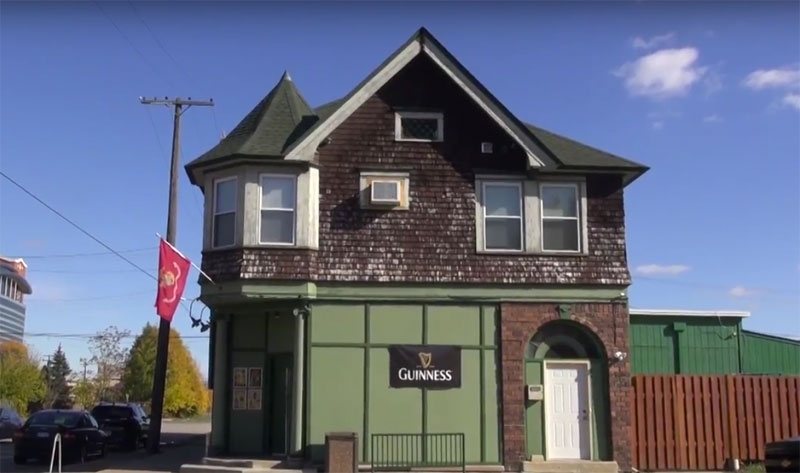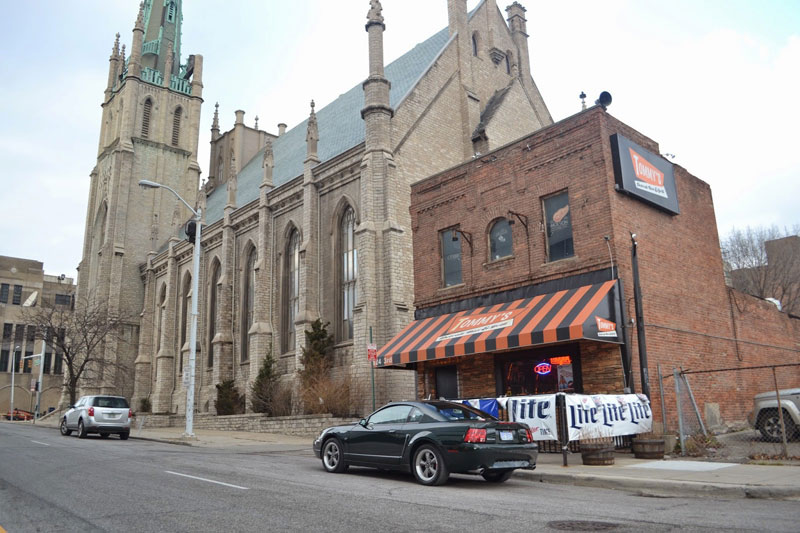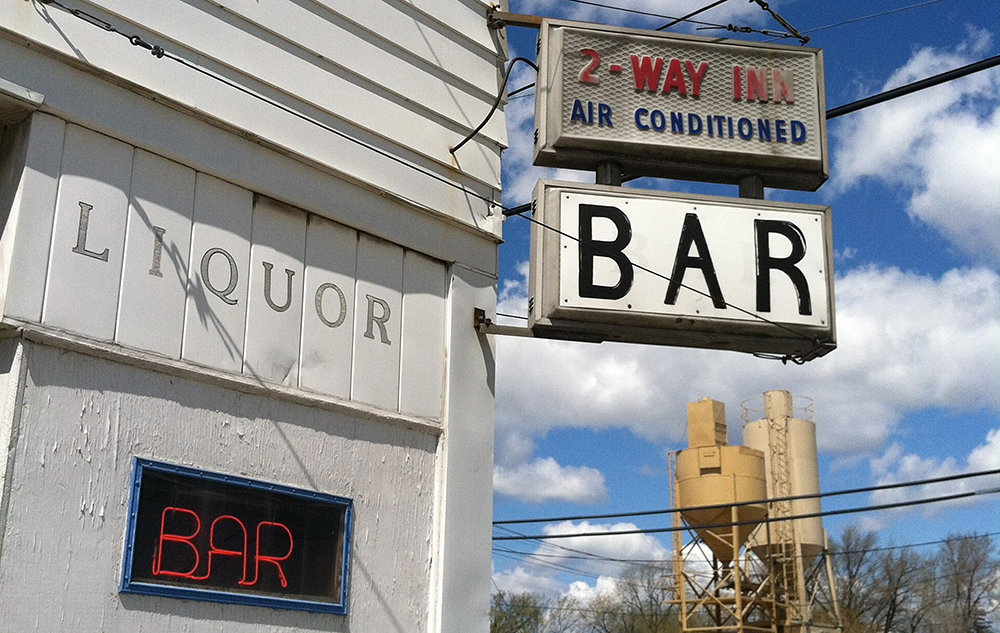Man we loved this trip - Motor City was a destination we both wanted to see since we were little. Both of us are gear heads, and so the history of motorsports and cars coming from this region was legendary, and traveling here was like going to Mecca. At the same time, the place has had a pretty rough life. It never recovered from the riots in the 1960's, then the mass exodus by the residents as one car plant after another shut down.
But lately there's been a renaissance, especially downtown, and cool small bars, breweries and restaurants have been popping up all over town. The new stadiums have been built, and the city is starting to come back alive. So we thought we needed to go find the oldest bars in the city and report on them for you. So here they are, the 5 oldest bars in Detroit, all vouched for by us!
Abick's Bar - 1907
3500 Gilbert St., Detroit, MI, 48210, (313) 894-9329
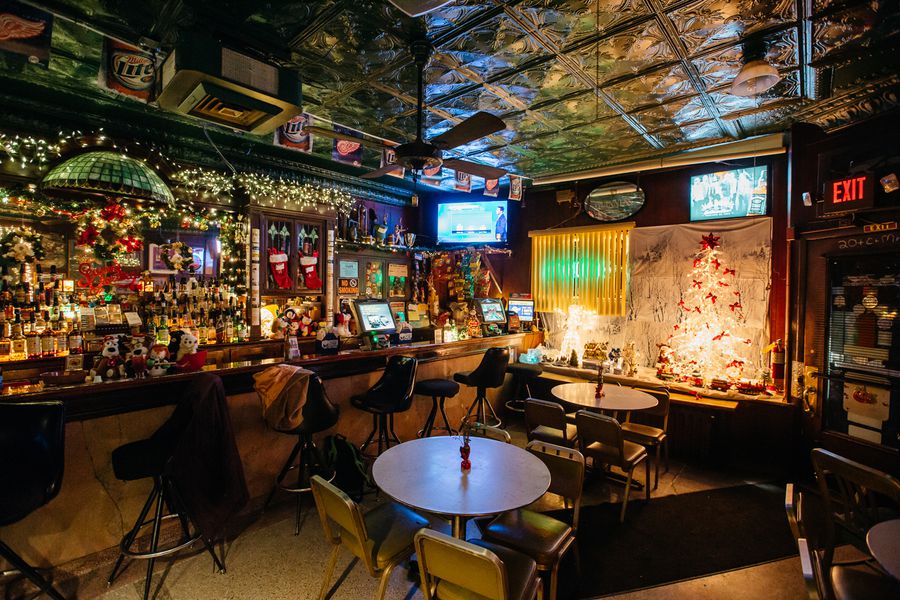
Believed to be one of Detroit’s Oldest Continuously Operating Family-owned bars, Abick’s is steeped in history. The bar was built in 1907 and became Abick’s in 1919 when George Abick purchased it. Later, during prohibition, it’s believed to have been a speakeasy (of course). During World War 2, it was run by Marie Abick, who was known to collect and pool the neighborhood ration stamps and cook up feasts for the locals, which was especially helpful as rations ran lean. Today the bar remains in the Abick family and it proudly retains its history with as little changed as possible.
Jacoby's German Biergarten - 1904
624 Brush St, Detroit, MI 48226, (313) 962-7067
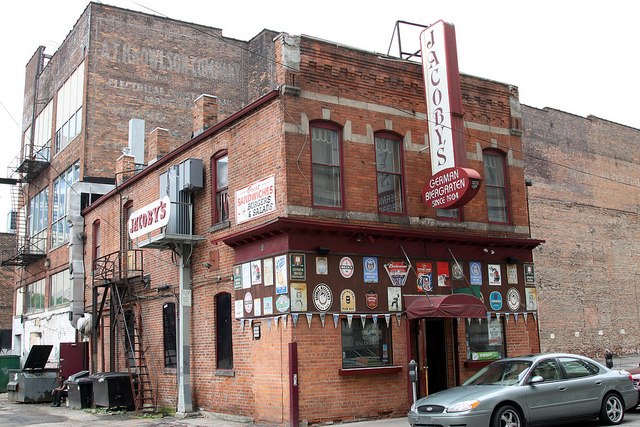
Founded by Albert Jacoby, a Luxembourg immigrant, right in the middle of downtown Detroit, Jacoby's German Biergarten has been serving delicious, authentic Bavarian food and beer since 1904. Popular with the huge immigrant population of the city, the old bar was frequented by many of Detroit's powerful (the good and the bad). Its proximity to the courts and businesses has made it a popular stop for after hours drinks and meetings in dark corners. Today, it retains its history and charm, serving up delicious food and strong drinks!
Nancy Whiskey - 1902
2644 Harrison St., Detroit, MI, 48216, (313) 962-4247
In 1902, an Irish immigrant known as Digby converted his general store into a full-fledged bar known simply as Digby’s Saloon (he realized that the residents of the Irish section of town were a thirsty lot). There it's stood ever since, even during prohibition when it was one of hundreds of speakeasys around town. The place is also just a couple blocks away from Jimmy Hoffa's office. According to legend, Jimmy’s office phone was tapped, So, to get around this he would stroll down to the local bar (now known as Nancy’s), and place calls in the phone booth (which is still there). Nancy Whiskey describes itself today as “Detroit’s oldest party,” and, with a liquor license that spans over 110 years, that claim is probably pretty close to the truth.
Tommy's Detroit Bar & Grill - 1880s
624 3rd Ave., Detroit, MI, 48226, (313) 965-2269
The exact date of construction for the brick building housing Tommy's, is unknown, but it was built sometime in the 1880s. Though it's had multiple owners, businesses, rooms and even floors added and removed over the years, throughout it all, it’s always served alcohol (both legally and illegally) in one form or another. In 1920, an Italian restaurant occupied the main level of the structure, and, later, when prohibition was the law, the basement was turned into a speakeasy known as Little Harry’s. Today when you walk into Tommy’s, the first thing you’ll probably notice is how modern it feels, but don’t let this fool you, the place celebrates its historic past.
2 Way Inn - 1876
17897 Mount Elliott Street, Detroit, MI, 48212, (313) 891-4925
The 2 Way Inn was established by Colonel Philetus Norris in 1873 in the small town of Norris, Michigan. The building was originally utilized as the town’s jail, general store, and the Colonel’s residence until it was turned into a saloon in 1876. During prohibition, it was turned into a combination Dentist office and speakeasy, which sounds weird at first until you consider the laws of the time—since the Volstead Act allowed doctors to prescribe alcohol to patients, having a dentist office in the building was exceptionally beneficial. Today the bar is best described as a homey neighborhood bar, or, as it’s owners, bartenders and patrons like to describe it, a “fine dive,” meaning dive bar pricing without the smells.


